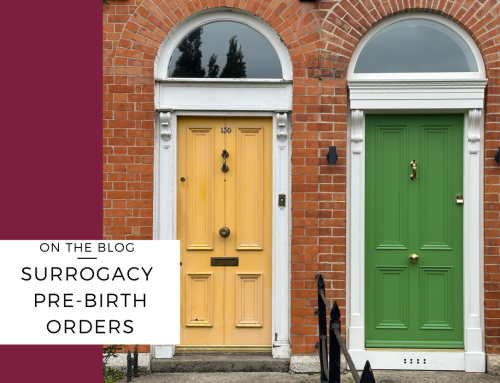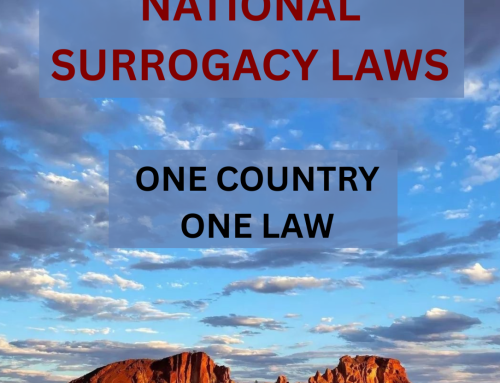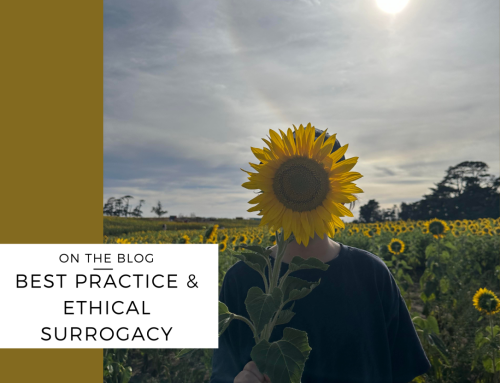Are you thinking about signing up to the Surrogacy Australia Support Service (SASS), or an agency overseas? You should do your due diligence and make sure the service or agency meets your expectations and needs.
It is not a requirement to join SASS in Australia. About 70-80% of my clients find a surrogate in their existing relationships. The other 20-30% find a surrogate in ‘new relationships’ formed after meeting on social media, particularly surrogacy-specific Facebook groups.
There are very few matches that occur in the Surrogacy Australia Support Service – only 1-2 per year. Compare this to the 20-30 that meet on Facebook, which is free. Many intended parents pay over $1300 to join Surrogacy Australia Support Service with the hope of finding a surrogate, but are unsuccessful. It is my professional opinion that you are more likely to find a surrogate on Facebook, than through SASS, and this is supported by my records of over 500 surrogacy arrangements. There are legitimate concerns about success rates and value for money and the ability to receive a refund if the service does not match your expectations.
Surrogacy Australia Support Service has claimed credit for part of the 20-30% of new relationships and suggests that you can improve your chances of finding a surrogate if you join SASS. This is untrue, and I believe it is false advertising. If there are only 1-2 matches facilitated by SASS each year, it does not stand to reason that they are responsible for 20-30% of matches. Less than two per cent of 500 surrogacy arrangements reported having been matched by SASS in the last 3 years. This is not evidence of success or good business.
The Surrogacy Australia Support Service is not a government initiative and is not endorsed or supported by the Australian government. It is not regulated nor does it require any qualifications of its staff.
Surrogacy Australia is connected with Growing Families, which is a for-profit business that promotes overseas commercial surrogacy service providers. This can give rise to a conflict of interest, which may not be in your interests.
I am often asked whether I recommend that intended parents join SASS. The answer is no, I do not. I have heard many stories of disappointed and frustrated intended parents who have joined SASS on the promise of being matched with a surrogate only to realise that the chances of success are minimal. SASS does not refund their fees if intended parents are dissatisfied with the service.
I have been questioned why I am so critical of the Surrogacy Australia Support Service. I do not benefit from being publicly critical of SASS, nor do I benefit from there being so few surrogacy arrangements in Australia. What I observe is many intended parents feeling desperate to find a surrogate and being lured to join Surrogacy Australia on the promise of a surrogate that likely does not exist. Intended parents deserve to know that they are vulnerable to exploitation.
I recommend asking questions of any service you wish to engage. If their response is to be defensive or refuse to provide clear answers to your questions, proceed with caution.
Regardless of where you go for your surrogacy arrangement, you should consider what best practice surrogacy looks like. And consider the conflicting interests in the surrogacy industry.
Some questions you should consider, before signing up:
- Is the service operating within the law? Surrogacy laws in Australia vary, and South Australia, Western Australia and Northern Territory prohibit introducing, matching and facilitating a surrogacy arrangement. Other states including Victoria and Queensland prohibit advertising, which means SASS is not allowed to advertise for intended parents and surrogates to join their service on the promise of finding a surrogate. Despite these laws, they continue to operate.
. - How many successful surrogate/intended parent matches have they made this past year? How many pregnancies and births have there been in the past few years? The Surrogacy Australia Support Service claims credit for only 8 matches over 5 years. They do not report on the number of intended parents who have joined and not been matched, and by my estimate it is likely to be in the hundreds.
. - Are you paying to access resources that are freely available elsewhere? The Surrogacy Australia Support Service member portal used to house resources that are freely available on my Blog. Why are you paying for resources that can be accessed for free?
. - How many surrogates are available and ready to talk to intended parents? There are always more intended parents than surrogates, but having a sense of what the ratio is can help you manage your expectations. The Surrogacy Australia Support Service may have up to a hundred intended parents and only a handful of prospective surrogates over the course of a year.
. - What are their screening processes, for surrogates and intended parents? And how are the staff qualified to provide the screening – do they have qualifications in the medical, counselling or legal fields? If they are screening, what guarantees of a positive outcome are they offering? Staff are Surrogacy Australia do not have any qualifications in providing psych-social education or support.
. - Australian clinics provide inhouse surrogacy counselling, as part of their package or because it is a legal requirement. If you are paying the Surrogacy Australia Support Service for counselling, are you paying for a service that you will need to pay for twice? Do they tell you that you may need to pay for it twice?
. - How does the fee structure work, and are there different points where we can change our minds and receive a refund of parts of the fees? What do our fees pay for, exactly?
. - What sort of timeframe can we expect to match with surrogates/intended parents? Does the timeframe match with our own expectations?
. - What happens if we do not match within a set timeframe? Do we get a full or partial refund? The Surrogacy Australia Support Service has refused to refund intended parents dissatisfied with the service.
. - What happens if a match falls through? Do we go to the end of the queue?
. - What associations does the service or agency have with other organisations? Do they declare any conflict of interest with organisations they refer you to? Who is making money and claiming to be not-for-profit or charitable? The fertility industry makes a lot of money from surrogacy, are you happy with who is profiting from your cash?
You should also get independent legal advice, either in Australia or in your destination country. While some agencies will make lots of promises, the legal framework may contradict what they are promising and even place intended parents in a vulnerable position. It is illegal to facilitate a surrogacy arrangement for money, in several states in Australia, and illegal in some to advertise a willingness to do so. You can find out more information about surrogacy laws in Australia.
A regulated framework that requires surrogacy matching services to be licensed and adhere to strict standards, such as that in New York, would benefit intended parents and surrogates in Australia.
There are surrogacy consultants and third-party brokers who will happily take your money and may offer services and promises that are unnecessary and may even break laws. Beware consultants who take commissions from agencies and clinics and do not declare the conflict of interest when they take your money and refer you to the agency which is paying them. I have been offered between $2000 and $10,000 to refer people to overseas agencies and clinics – the practice is unethical and illegal.
Sarah has published a book, More Than Just a Baby: A Guide to Surrogacy for Intended Parents and Surrogates, the only guide to surrogacy in Australia.
You can find more information in the free Surrogacy Handbook, reading articles in the Blog, by listening to episodes of the Surrogacy Podcast. You can also book in for a consult with me below.








